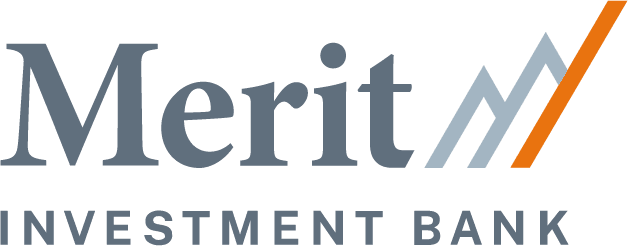In our last blog, we began a conversation about how to achieve an advantageous “Outlier Outcome” when it comes to establishing your company as a market leader and top-quality asset, deserving of premium value.

Tracking and Knowing Your Analytics
Companies with a strong and consistent historical EBITDA margin—as well as margin growth above their peers—are generally the ones that achieve outlier outcomes. We are talking , of course, about Consistent Profitability, a high priority for prospective buyers.
Naturally, the measures here are profitability performance metrics; however, we would be remiss if we didn’t give a respectful nod back to innovation, differentiation, and a well-oiled sales process and team as the building blocks to profitability.
This poses some critical questions sellers do well to ask themselves:
- How do I/we know we are profitable?
- How granular can we get around profitability?
For one, recognize that your company’s ability to track, analyze, and improve its results through the use of data (both financial and operational) is a prized asset and will distinguish you from competing companies that are not doing this well. Companies that value their financial data and metrics, and can determine profit in real time by sector, customer, product, or SKU, etc., will instill confidence in today’s wary buyers. This ability, combined with sale process acuity, provides valuable, insightful visibility into your company’s future sales and profitability—and sets you apart from the crowd.
If you want a quick scorecard on where you are with this, compare variances in your budget to actual numbers. Invest on parsing your data to where you can answer buyers’ questions accurately and emphatically: “We are making X here and Y there,” and identify it down to the unit, part, customer, sector, etc.

Securing Your Leadership
A fully staffed and highly capable management team that will stay after the close of a deal is a must to ensure you are not discounted by prospective buyers due to gaps in your plan or team that can lead to inconsistent profitability. Here are a few more questions for self-reflection on this point:
- Have you invested in “A” Players?
- Have you taken a month off to see how they do? The definition of a truly sellable company is one that does not need you in it to succeed.
- Have you hired for your next stage of growth and revenue band? Are the people who “got you here” ($50MM) the same people to “get you there” ($100MM)?
- Have you committed to hiring folks smarter than you?
Developing a Defensible Pro Forma
Outlier outcomes happen when a company has invested in a solid growth and expansion plan (vs. an over-ambitious, thrown-together spreadsheet). Again, here’s a short checklist for self-evaluation:
- Is the plan both strategic and proactive, leveraging your existing differentiation, sales process, and execution?
- Are there enough resources dedicated to success—e.g., marketing, business development, promotional efforts, sampling, demo costs, capabilities, etc.?
- Have you determined the quality of that revenue and are you able to prove it? Is it project based or ARR? Is it hourly based, or royalty based? Are you able to charge for IP / IC, or is it just another me-too offering?
Far too often we have seen companies fall down in this area, not considering defensible positions, revenue expansion opportunities, or the ability to leverage existing customers for great growth with lower sales expense.
Remember: buyers are looking for future profits; they want to see these implied in your pro forma. An attitude that can cost sellers mightily is, “Here are the keys . . . I have taken it this far; it’s your job to grow it from here.” This is costly, as the M&A axiom proves time and again: “Buyers buy the past (historical results) and sellers want to sell the future (proforma).”
Buyers are smart; they make assessments about your pro forma and the reliability of the future streams of cash flows your company kicks off. Without a solid, defensible plan, you will not achieve an outlier outcome. More self-reflection questions can help you get ahead on this:
- If I have five years of 7% growth, will a buyer really believe I can all of sudden grow 30% annually?
- If my sales have been up and down for various reasons, will a buyer believe I have a pro forma and sales process capable of delivering 20% growth for five straight years?
- Have I tied my pro forma to a defensible and real Cap-ex projection and run the ROI on those numbers? (Professional buyers do this at the breakfast table vs. the crossword puzzle, and nothing erodes credibility of a seller more if they have not done the ROI math or have understated capital requirements to achieve the plan.)
Here’s Where We Can Help
If you are a seller seeking an outlier outcome, you may benefit from the assistance of Merit Investment Bank’s Outlier Outcome Team, identifying defensible growth opportunities and ramping up traction quickly before the sale of your company. Bottom line: to achieve an advantageous exit, you need exit velocity where the classic Outlier Outcomes characteristics are met, and your performance outstrips that of your peers. That’s where we come in!
At Merit Investment Bank, we are here to help you navigate your best exit and secure your own Outlier Outcome. In the third installment of this blog series, we will tackle the last two qualities of Outlier Outcomes: Good Positioning and a Good Tailwind Sector.
Reach out anytime to discuss the best path for your company to grow or build generational wealth through the recapitalization or sale of your private company.
Check out Part 1 of the Outlier Outcomes series: https://meritinvestmentbank.com/outlier-outcomes-part-1-differentiation-and-growth-rate/
Check out Part 3 of the Outlier Outcomes series: https://meritinvestmentbank.com/outlier-outcomes-good-positioning-favorable-tailwind-sector/
253-370-8893 | Craig.Dickens@meritinvestmentbank.com | @MandAexit
Craig Dickens, CEO Merit Investment Bank
Craig is responsible for setting the firm’s vision, creating a culture of boutique personalized service, and recruiting experienced investment bankers to build the Merit Investment Bank team nationally and internationally. Mr. Dickens has advised many leading companies and participates on several middle-market company boards.
Having participated in every kind of business dynamic from start-up to IPO, merger to dozens of acquisitions in his own entrepreneurial career, Mr. Dickens serves clients by guiding them to strategic growth, business optimization, and profitable exit. Merit Investment Bank is a leading boutique investment bank focused on entrepreneurial middle-market companies. Merit Investment Bank executes sell-side M&A, buy-side M&A, capital advisory services, debt and equity capital raises, corporate finance, and valuation services. www.meritinvestmentbank.com

0 Comments